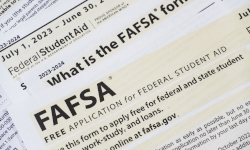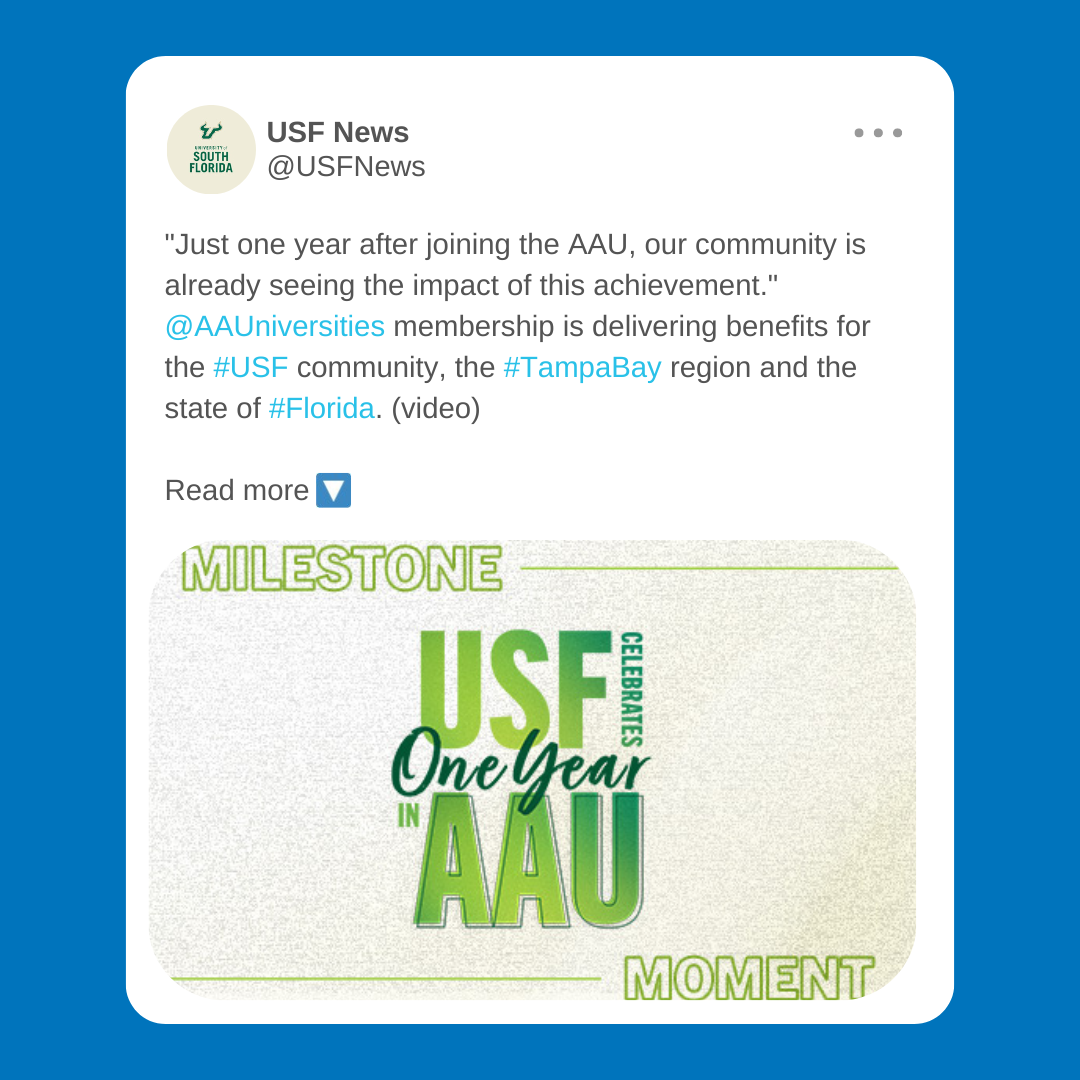 Double Pell Alliance Urges Congressional Appropriators to Increase Maximum Pell Grant Award
Double Pell Alliance Urges Congressional Appropriators to Increase Maximum Pell Grant Award
The Double Pell Alliance, which includes AAU, recently sent a letter to leaders of the House and Senate Appropriations Subcommittees on Labor, Health and Human Services, Education, and Related Agencies urging them to “make significant progress in fiscal year (FY) 2025 toward increasing the maximum Pell Grant award to $13,000.”
Introduced nearly 50 years ago, the federal Pell Grant program has helped millions of low- and middle-income Americans afford a college education. As the alliance’s letter noted, “Pell Grants allow more than six million low- and middle-income students to attend college each year, serving as a critical boost in affordability for students who would not otherwise be able to attend college.”
The alliance thanked appropriators for preserving level funding for the grant in FY24 despite budgetary challenges, but noted that “level funding diminishes awards for students due to inflation.” It argued: “We strongly believe Congress should continue to make Pell Grant funding a top priority, especially since it is the cornerstone of federal student financial aid.”
 ICYMI (2021): Barbara’s Blog: It’s Time to #DoublePell
ICYMI (2021): Barbara’s Blog: It’s Time to #DoublePell
New Survey Shows Asian Americans Oppose Use of Race, Legacy as Admissions Considerations
A new study by AAPI Data and the Associated Press-NORC Center indicates that Americans of Asian and Pacific Islander descent value college degrees and support ethnic and ideological diversity in higher education, but oppose both racial and legacy considerations in admission decisions.
Surveying a nationally representative sample of more than 1,000 AAPI adults, the study found that 69% of respondents “believe colleges should foster the free exchange and debate of ideas and values” and more than half (51%) thought higher education’s main purpose is to “advance equity and inclusion.” However, a majority (53%) said it is “unfair” for colleges to consider race in college admissions, while less than a fifth (18%) believed an applicant’s race was a fair factor to consider.
Nonetheless, 45% of respondents said considering applicants’ personal experience with hardship or adversity was fair, while an overwhelming majority of respondents (69%) opposed considering legacy status in admissions.
Nearly half (48%) of the respondents said a four-year college degree is “essential” for securing a job that can support a family comfortably.
 AAU, Associations Ask Congress to Address Problems Created by FAFSA Delays
AAU, Associations Ask Congress to Address Problems Created by FAFSA Delays
AAU recently joined the American Council on Education and other higher education associations in a letter asking Congress to address problems created by delays associated with the rollout of the new Free Application for Federal Student Aid (FAFSA) form. The letter was addressed to the leaders of the House Committee on Education and the Workforce and the Senate Committee on Health, Education, Labor and Pensions.
The letter put forth a range of proposals, including allowing institutions to immediately transfer up to 100% of their unexpended Federal Work-Study dollars to the Federal Supplemental Educational Opportunity Grant program and to require a long-term assessment of how the delays have affected students and institutions. Among other things, the letter proposed that Congress protect institutions that processed original Institutional Student Information Records (ISIRs) containing inaccurate data; move up the FAFSA deadline from January 1 to October 1; and require “a comprehensive assessment, along with the other changes to the need-analysis formula, to determine the effects on student aid eligibility for students who come from families with assets from family farms and small businesses with no more than 100 employees.”
“We hope that Congress will take action and advance legislation that will both protect our students from any future harm caused by the current FAFSA delays and that will also improve the federal student aid system,” the letter noted.
News of Interest
The New York Times: Biden Cancels Billions in Student Loan Debt, a Centerpiece of His Campaign – Last month, the Biden administration announced that it is cancelling another $7.7 billion for 160,000 borrowers, including those who qualified through adjustments made to the Public Service Loan Forgiveness program, the Saving for a Valuable Education (SAVE) plan, or another income-driven repayment plan. The administration “has now canceled about $167 billion in loans for 4.75 million borrowers, or roughly one in 10 federal loan holders.”
The Washington Post: Harvard, Criticized for War Response, to Avoid Stances on Public Issues – Harvard University announced last week that it would no longer take public stances on issues that do not relate directly to the university’s core functions. The decision, which top officials announced in a statement, came upon recommendation of a faculty committee that studied the issue in the wake of criticism the university has faced for its statements and actions relating to the October 7 Hamas attacks on Israel and the ensuing Israel-Hamas war in Gaza.
The Hill: UCLA to Lead First Federal Research Center Focused on Building Heat-Resilient Communities – Thanks to $2.5 million in funding from the National Oceanic and Atmospheric Administration and the Department of Commerce, the University of California, Los Angeles is establishing the first federal research center focused on “bolstering community resilience to local heat impacts.” Lead partners for the Center of Excellence for Heat Resilient Communities also include Arizona State University and the University of Arizona.
Inside Higher Ed: Five Takeaways from the UCLA, Northwestern, Rutgers Antisemitism Hearing – Late last month, the House Committee on Education and the Workforce held another hearing on the issue of antisemitism on college campuses. The committee asked Rutgers University President Jonathan Holloway and Northwestern University President Michael Schill about the agreements the universities reached with campus protesters and their decision to not call law enforcement to end encampments on campus. Lawmakers also questioned University of California, Los Angeles Chancellor Gene Block about what he could have done to prevent a violent episode on the UCLA campus involving counter-protesters and protesters in April.
Featured Research

Hearing Is Be-Leafing: Students Invent Quieter Leaf Blower
Engineering students at Johns Hopkins University have designed an attachment that cuts the noise coming out of a leaf blower without affecting performance. The patent-pending design wowed officials at Stanley Black & Decker, “who can’t wait to start manufacturing and selling the new tools.”

Serious Flu Damage Prevented by Compound That Blocks Unnecessary Cell Death
Scientists at Tufts University have developed a new compound that can reduce “lung injury and inflammation caused by an overactive immune response to the flu virus.” The researchers found that the compound “can safely and efficiently” prevent cell death in lungs that can cause “life-threatening injury to lung tissue” without “intolerable side effects.”
From Our Feeds

The University of South Florida celebrated the one-year anniversary of its invitation to join AAU with an online video and other content highlighting its research, educational, community, and economic impacts in the Tampa Bay area and beyond. AAU President Barbara R. Snyder said : “As one of America’s leading research universities, the University of South Florida in its first year in AAU has proven to be a strong partner in our efforts to promote the government-university research partnership, which produces discoveries that improve the lives and health of Americans, expand our economy and make us safer and stronger.”